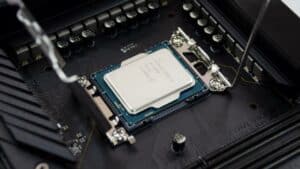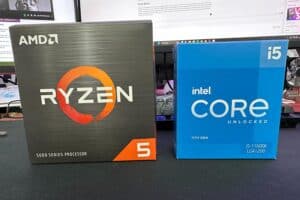Intel i9 14900K vs Ryzen 7 7800X3D performance, specs & price
Wondered how the 14th gen flagship stacks up against the wonderous 7800X3D? Well we're here to tell you.
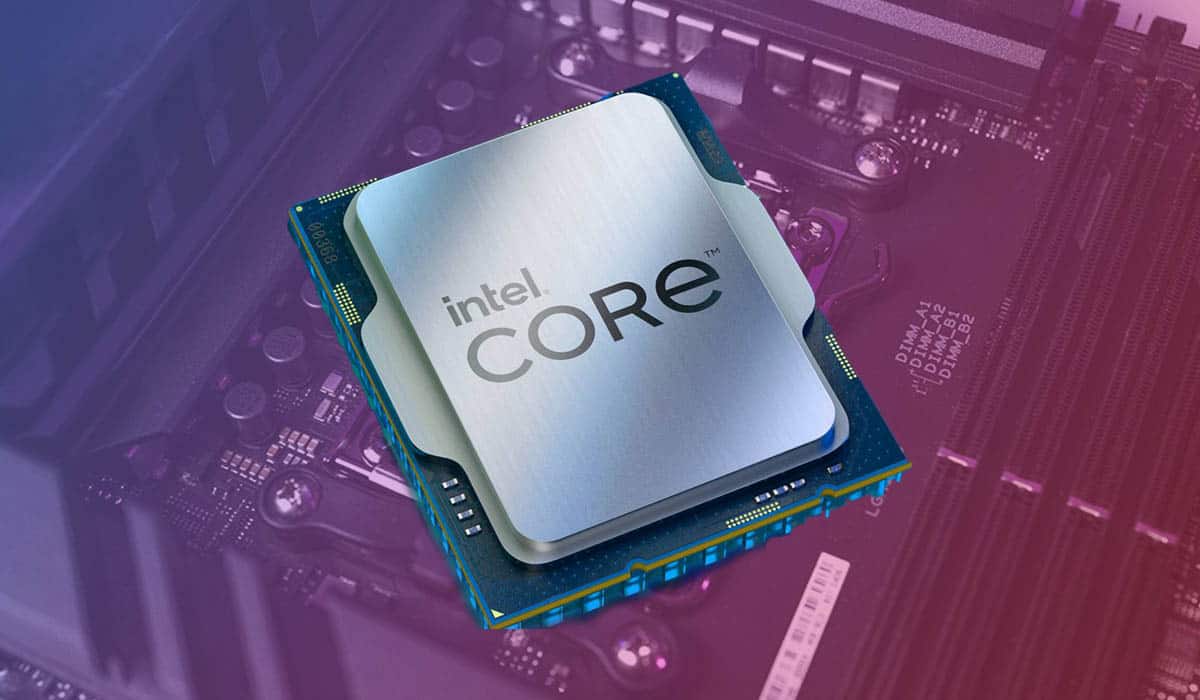
WePC is reader-supported. When you buy through links on our site, we may earn an affiliate commission. Prices subject to change. Learn more
When it comes to 14900K vs 7800X3D – which has the edge in specs, price, and performance? In the ever-evolving world of CPU technology, Intel has just launched its latest 14th-generation processors, introducing a set of notable changes, though not massive ones. These adjustments pave the way for a classic comparison that has puzzled tech enthusiasts for years: “AMD or Intel?”
The Intel 14th gen release date is finally here, meaning you need to be quick and educate yourself if you want to take advantage of any Intel 14th gen pre orders. In this article, we embark on a deep dive into this enduring rivalry, here is the Intel i9-14900K vs Ryzen 7 7800X3D.
The 14900K is at the top of its class, the pinnacle of Intel performance if you will. Whereas you have the 7800X3D, which sits slightly lower in its respective chain of command, but punches above its weight in terms of gaming. It’s the third-most powerful CPU on offer from Team Red. If you’re looking for a proper breakdown of the new CPU, check out our Intel Core i9-14900K review that has now gone live! Our 14600K review is also a good read.

Intel Core i9-14900K
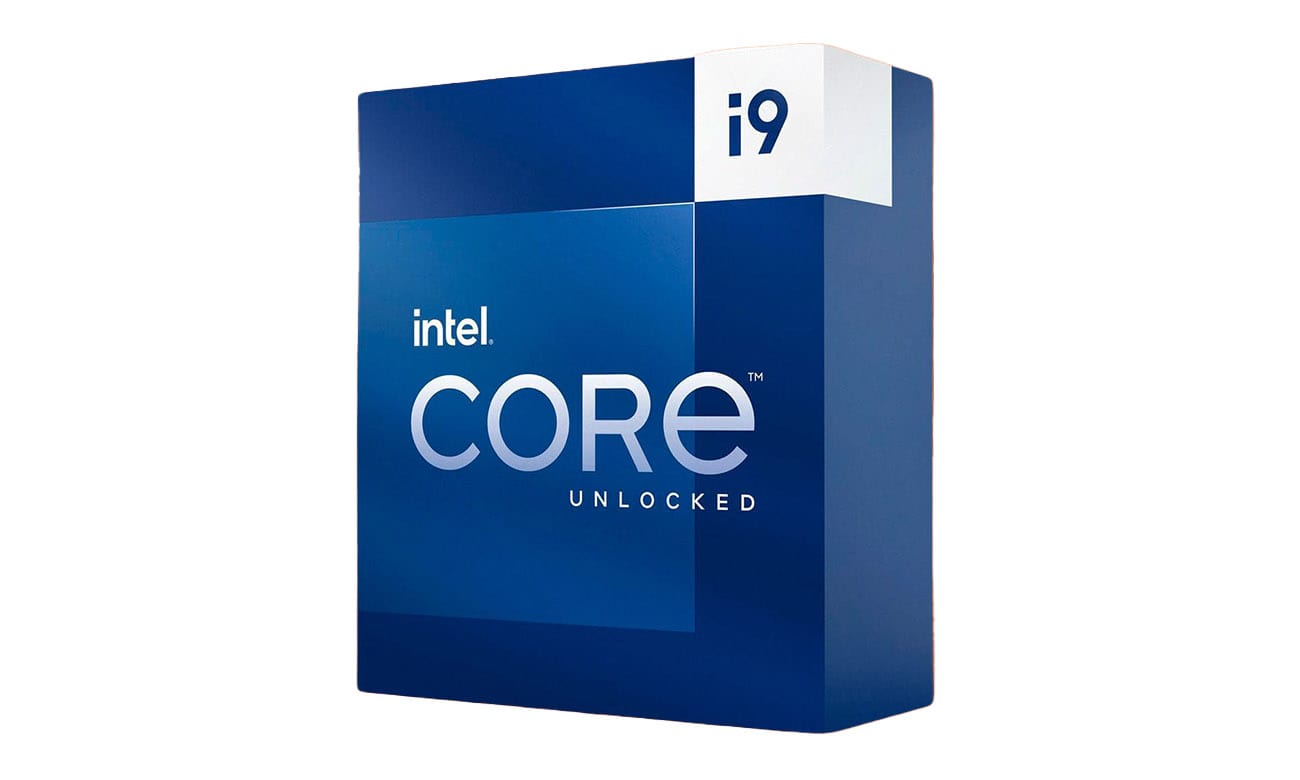
Core configuration:
24 (8+16)
Threads:
32
P-Core Speed:
5.8GHz (boost) 3.2GHz (base)
E-Core Speed:
4.4GHz (boost) 2.5GHz (base)
DDR5 support:
Yes @ 5600MHz
TDP
125W base 253W PL1 & PL2


AMD Ryzen 7 7800X3D
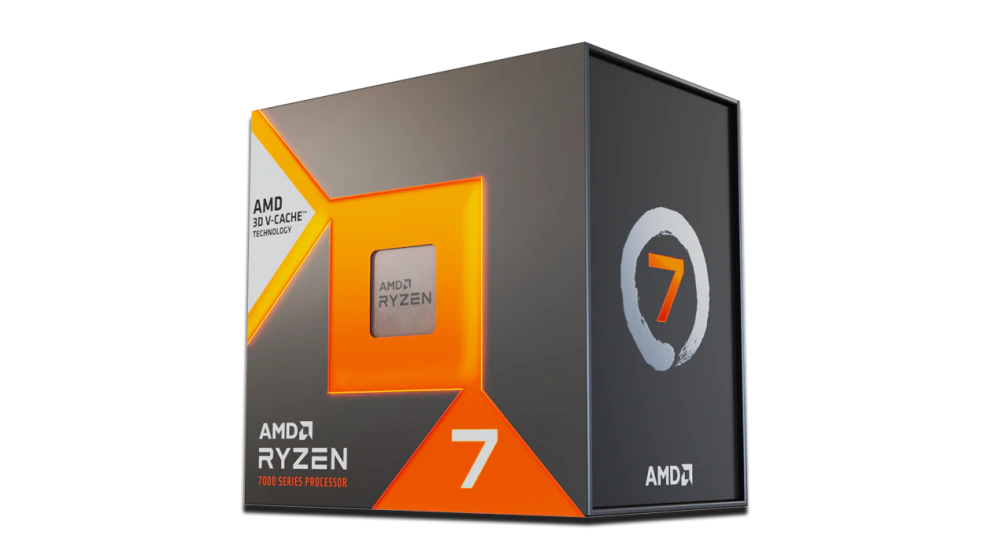
Cores:
8
Thread:
16
Boost speed:
5.0GHz
Cache:
96MB
TDP:
120W
Today’s best CPU deals
- AMD Ryzen™ 9 7900X3D – Save 17% NOW!
- Intel Core i9-13900KF Gaming Desktop Processor – Save 15% NOW!
- AMD Ryzen 9 5900X – Save 51% now!
- AMD Ryzen 7 7800X3D – Save 18% now!
- Intel Core i9-13900K – Save 17% NOW!
Intel Core i9-14900K vs Ryzen 7 7800X3D specs
| Specifications | i9-14900K | Ryzen 7 7800X3D |
|---|---|---|
| Process size | 10nm | 5nm |
| Die size | 257mm² | 122mm² |
| No. of cores | 24 | 8 |
| No. of threads | 32 | 16 |
| P-Cores | 8 | N/A |
| E-Cores | 16 | N/A |
| Frequency | 3.2GHz | 4.2GHz |
| Turbo clock | 6GHz | 5GHz |
| Base TDP | 125W | 120W |
| Release date | 17th Oct, 2023 | April 6th, 2023 (release) |
| Launch price | $599 | $449 |
From here, it’s easy to see the clear winner. The 14900K, at least on paper, is going to dominate the poor 7800X3D when pitted against it directly. The 7800X3D just doesn’t have the number of cores, threads, or core speed to keep up with Intel’s latest and greatest.
For a long time, AMD was known for its strong multi-core performance, while Intel excelled in single-core tasks. However, recent years have witnessed a subtle change. On paper, the 14900K stands out as the more potent processor with more cores, and many more of these cores can achieve higher boosts than the 7800X3D.
Intel has demonstrated its capability with the 12900K and 13900K, proving it can handle both multi-core and single-core performance with ease. Yet, AMD is not one to back down from this competition.
There is an ace in the hole, the 7800X3D’s X3D component empowers certain games to harness the CPU’s lightning-fast stacked 3D v-cache, potentially giving the AMD CPU a substantial advantage in specific gaming scenarios. Yet the question remains: can this edge prove sufficient to outperform the 14900K? Probably not considering the lock on manual overclocking the 3D cache brings.
14900K vs 7800X3D performance
Our processor specialist Jack Howarth has fully benchmarked and tested the new i9-14900K, which you can read all about in his Intel Core i9-14900K review. To summarise though, this latest Intel flagship is approximately (depending on the scenario) 4-6% more powerful than it’s previous gen equivalent, across both single-core and multi-core.
We know that the Ryzen 7 7800X3D performs about 10% better in gaming scenarios compared to the i9-13900K, but is about 30% less powerful in other single-core scenarios and about 50% less powerful in multi-core scenarios. This means that the Ryzen 7 7800X3D will perform approximately similar (maybe 3-4% better) than an i9-14900K in gaming, but in all other scenarios (particularly workstation and creative use) the Intel processor will absolutely paste it.
14900K vs 7800X3D price
Since they’re now listed on Amazon, the Intel 14th gen prices have been confirmed. As you can see below, the i9-14900K costs $599, which is a $10 increase from the $589 of the previous generation. Unsurprisingly this is considerably more than the Ryzen 7 7800X3D costs, given the latter is essentially one SKU lower in the AMD range (despite the powerful gaming performance of the 7800X3D).
The 7800X3D launched at $449 but is now available even cheaper. making the 7800X3D the clear winner if you’re bound to a tighter budget. But if you want raw power and unmatched performance, you’re going to want to dig a little deeper and splurge on the 14900K.
14900K vs 7800X3D Final Word
When comparing the i9-14900K vs 7800X3D, the 14900K is the clear winner in many scenarios, though when it comes to gaming it’s less clear cut.
In terms of specifications, the 14900K outperforms the 7800X3D on paper. The 14900K is positioned at the top of its class, while the 7800X3D falls slightly lower in the pecking order as the third most powerful CPU from Team Red. It boasts more cores and a higher core speed, making it a potent processor, especially for those demanding tasks. Intel has shown its prowess with CPUs like the 12900K and 13900K, handling both multi-core and single-core tasks effectively. AMD, however, doesn’t back down from this competition.
The 7800X3D has a unique advantage with its X3D component, which enhances certain games by utilizing the CPU’s super-fast stacked 3D v-cache. This gives the AMD CPU an edge in specific gaming scenarios, although manual overclocking of the 3D cache is locked, limiting its potential.
In terms of pricing, there was a $150 difference in terms of MSRP at launch, but the Ryzen 7 7800X3D is now available for even cheaper, meaning a $230 difference. If you’re looking for raw power and unmatched performance in all scenarios, the 14900K is the choice, while those on a tighter budget whose only interest is gmaing may find the 7800X3D to be a more attractive option.


